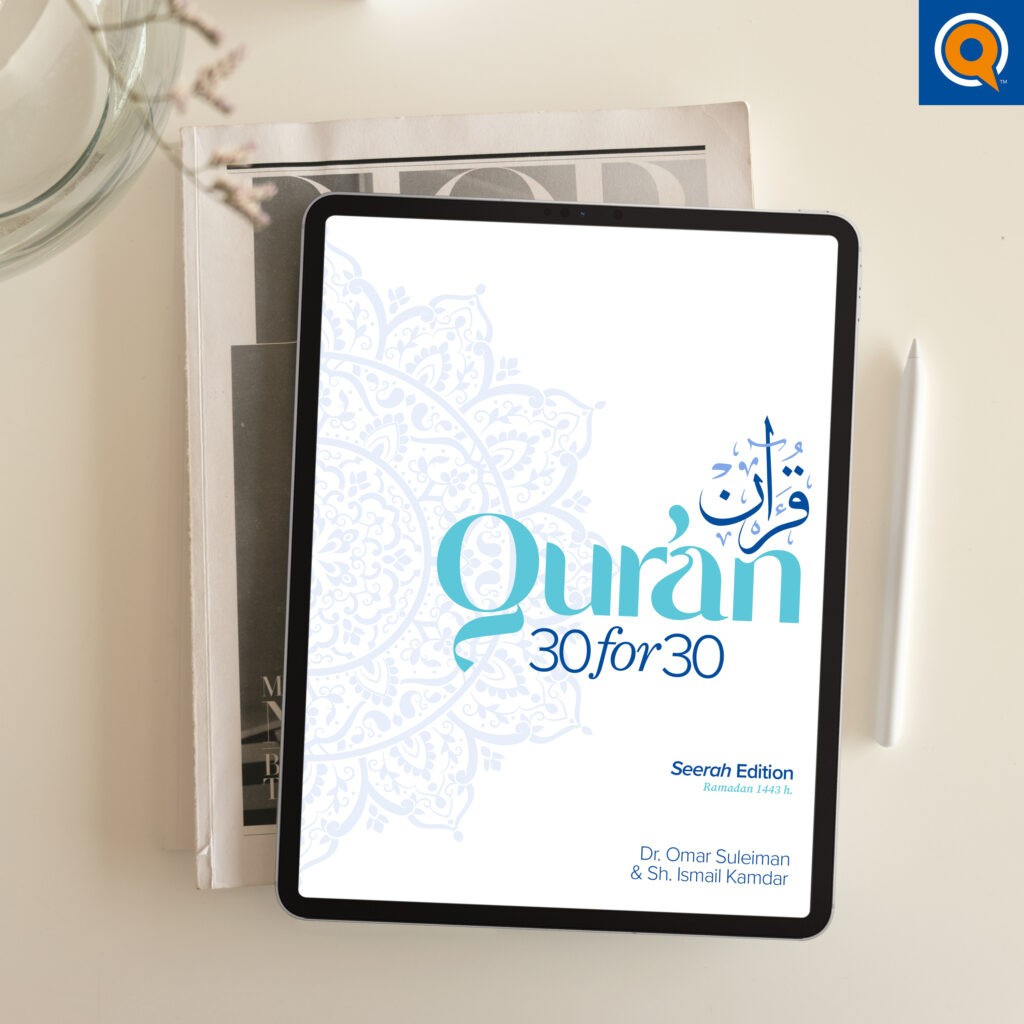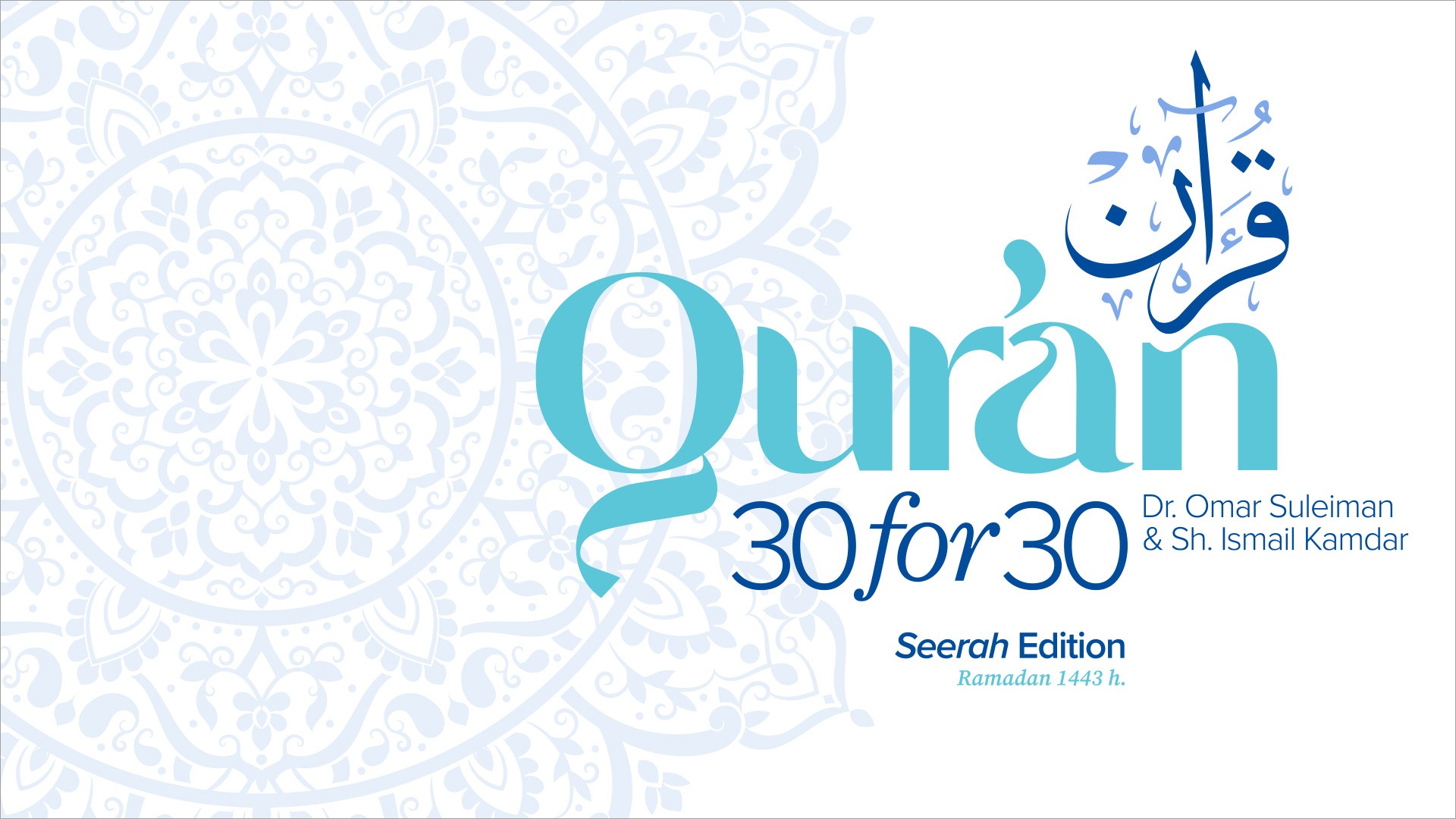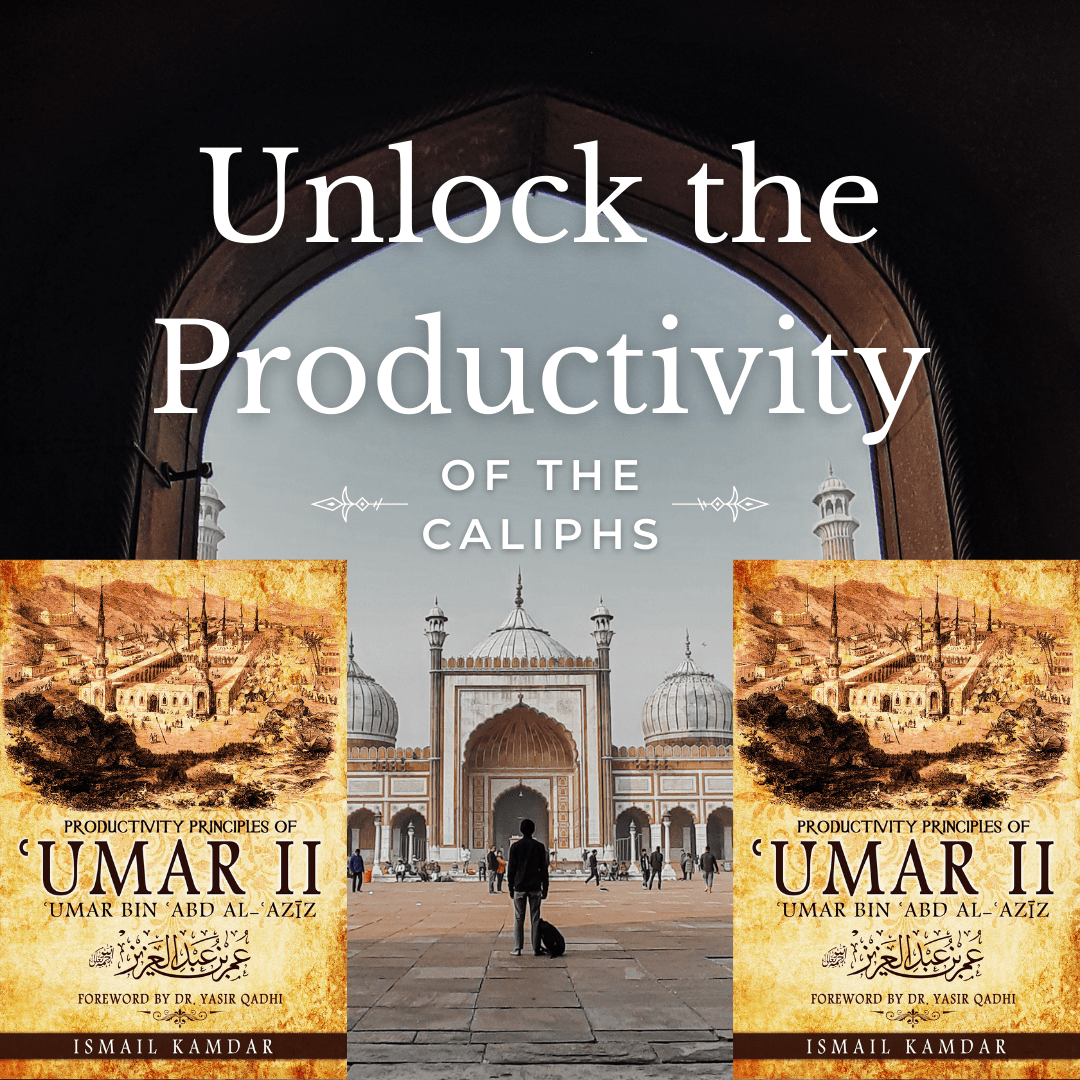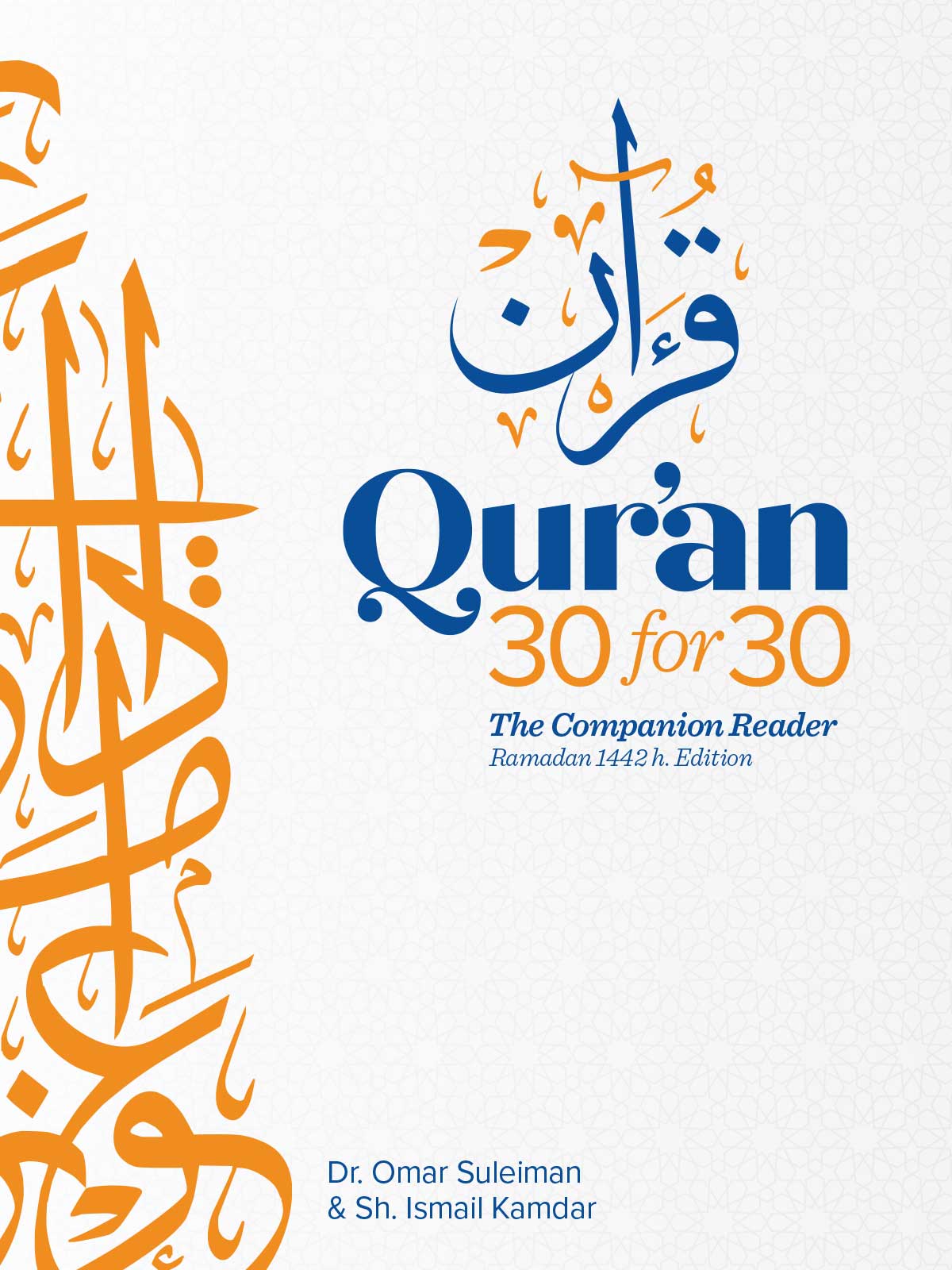Q: Why did you choose ʿUmar bin ʿAbd al-ʿAzīz (RA) as the topic of your book?
I have always been fascinated by the story of ʿUmar bin ʿAbd al-ʿAzīz (RA). He has been a role model of mine since I was a teenager. There is just something extraordinary about his story that makes him stand out among other historical figures. He stands out from among the Tābiʿīn (second generation of Muslims) as the best Caliph of that generation, as well as one of the most pious and knowledgeable men of that era. He played a crucial role in shaping Islamic government policies, preserving hadith, and spreading Islam to new lands. Yet despite all this, most Muslims that I meet have never heard about him. His amazing story remains unknown to the average Muslim and I wanted to change that with this book.
I had the idea to write a book about his life over a decade ago, but did not get down to doing so. A few years ago, I delivered a Jumah Khutbah on lessons from the life of ʿUmar bin ʿAbd al-ʿAzīz (RA) and it was very well received. This motivated me to go back to the topic, and I realized it was time to finally sit down and write this book. Thus, I dedicated the bulk of 2019 to writing, researching, editing and publishing this book.
Q: Can you give us a brief glimpse into who ʿUmar bin ʿAbd al-ʿAzīz (RA) was and why his story is important?
Sure, ʿUmar bin ʿAbd al-ʿAzīz (RA) was the eight Umayyad Caliph. On his father’s side, he was the grandson of Marwan Ibn Hakam (RA), and on his mother’s side, he was the great-grandson of ʿUmar ibn al-Khaṭṭāb (R.A). He grew up in Madinah under the tutelage of his grand-uncle ʿAbdullah Ibn ʿUmar (RA), and the great scholars of Madinah. He served as the governor of Madinah during the reign of his cousin/brother-in-law Walīd Ibn Abd al-Malik(RA), and as Grand Vizier during the reign of his Walīd’s brother Suleiman (RA).
After the death of Suleiman (RA), ʿUmar bin ʿAbd al-ʿAzīz (RA) became the eight Umayyad Caliph. Historians often refer to his as ʿUmar II (ʿUmar The Second) as he was the second ʿUmar to serve as Caliph, thus the title of the book, Productivity Principles of ʿUmar II. During his reign, he reformed many of unjust policies of early Umayyads, and attempted to bring the Caliphate back in line with that of the Rightly Guided Caliphs. He played a crucial role in reforming various policies, and setting new standards for the Islamic Empire, earning him titles like the Fifth Rightly Guided Caliph and the First Reviver of Islam. ʿUmar bin ʿAbd al-ʿAzīz (RA) served as Caliph for only two and half years before he was poisoned by his cousins, and murdered. May Allah grant him the best of the Afterlife.
Q: As a follow up to that, why do you think many Muslims are unaware of the story of ʿUmar bin ʿAbd al-ʿAzīz (RA), when he played such an important role in early Islamic History?
I think it boils down to a common problem in our Islamic History curriculum. Too many Muslim schools focus only on the history of the first generation of Muslims. We study intensively the lives of the Prophet (pbuh) and the Four Rightly Guided Caliphs which is great and crucial. But we make the mistake of stopping there. Too often, the rest of history is summarized in a few short lines (Umayyads, then Abbasids, then Ottomans) without going into any details. As a result, the stories of many great people from our history remain unknown or forgotten to all except those who are truly passionate about history and seek the knowledge out themselves.
When I first published this book, many people asked me who ʿUmar bin ʿAbd al-ʿAzīz (RA) was and why they never heard about him before. Many of these were people who are generally knowledgeable about Islam, yet have a gap when it comes to Islamic History. These conversations made me realize how crucial it is to write about these figures, and share their stories with new generations. From all major Islamic subjects, history is often the most overlooked today and I try to fill that gap with my lectures and writings.
A wrong understanding of history can cause many doubts and unrealistic expectations. This is why my book is prefaced with an extended introduction focused on how to approach and study history, as well as a summarized history of the first century of the Muslim Empire. I hope that this book will contribute towards making ʿUmar bin ʿAbd al-ʿAzīz (RA) a household name and a role model for Muslims everywhere once again.
Q: What is your favorite story from the life of ʿUmar bin ʿAbd al-ʿAzīz (RA)?
There are honestly too many to list, but I will mention briefly the one story that always blows me away, it is actually the story of the events that led to his birth. This story actually takes place in the Caliphate of ʿUmar I (RA).
When ʿUmar I was caliph, he had a habit of going around at night in disguise to see if anybody needed help. One night, he overheard a conversation between a young lady and her mother. The mother was telling her daughter to mix milk with water and sell it in the market. Her daughter reminded her that Caliph ʿUmar had prohibited such practices. The mother said, “ʿUmar cannot see you.” To which the daughter replied, “But the Lord of ʿUmar can.” ʿUmar was so impressed by this reply that he asked his servant to find out who that young lady was.
When he learned more about her, he approached her with an offer to marry his son ʿĀṣim. She accepted the offer, and they married. It is narrated that later ʿUmar had a dream, after which he used to say, “I wish I knew the man from my descendants, with a scar on his face, who will fill the earth with justice, just as it was full of injustice and oppression.” Many Muslim historians claim that the just ruler ʿUmar saw in his dream was actually ʿUmar II.
It really blows my mind every time I think about how destiny worked through this story, a great Caliph finds a righteous wife for his son, hoping that from their progeny would arise a just ruler. That couple has a daughter who married the prince ʿAbd al-ʿAzīz Ibn Marwan (RA), and their son ʿUmar bin ʿAbd al-ʿAzīz (RA) grows into one of the most just rulers in the history of this world.
Q: That is amazing. I actually never heard that story before. What were some of the policies of ʿUmar bin ʿAbd al-ʿAzīz (RA) that stand out?
Once again, there are too many to count, and I discuss these in various sections of the book. I will list my three favorite policies of his. The first is that he removed various taxes from the early Umayyads had unjustly levied on converts. These unjust taxes were discouraging people from converting to Islam, and by removing them, he opened the door for hundreds of thousands of converts to enter Islam. He famously told his governors “Allah did not send his messenger as a tax collector, He sent him as a Mercy to his universe.” His entire mindset towards taxes can be summarized in this one statement.
Another important policy of his was increasing the salaries for Islamic scholars. His cousin Walid (RA) was the first to establish a policy of a state salary for Islamic scholars, so they could focus on their Islamic work without needing to worry about finances. ʿUmar bin ʿAbd al-ʿAzīz (RA) took it one step further and increased the salary to a comfortable amount, which in turn encouraged many youngsters to choose Islamic Studies for their careers. This led to a new generation of financially strong intelligent and capable Islamic scholars.
A third policy of his that is very important, so important that I dedicated an entire chapter to it is his emphasis on Shura (seeking expert advice). ʿUmar bin ʿAbd al-ʿAzīz (RA) revived the Sunnah of a ruler surrounding himself with experts and pious scholars. He sought their opinions on all major policies, and would humbly listen to their perspectives. This incredible policy led to many of the important reforms that took place during his reign. ʿUmar bin ʿAbd al-ʿAzīz (RA) famously said, “The heart of Islamic Law is adherence to what you find in the Book of God, the issuing of rulings based on the example set by the Messenger of God as well as the judgments handed down by the Rightly-Guided leaders, and consultation with the learned whose points of view can be trusted.”
Q: What can readers expect from the book in terms of format, themes, and core lessons?
The book is divided into four broad sections: introduction, history, productivity principles, and appendices. The introduction is a bit lengthy yet many readers say it is their favorite part of the book. In this introduction, I clarify the correct approach to studying history, as well as some of the reasons readers often experience a disconnect with history. This is very crucial information that not only sets the tone for the book, but will also assist the reader in studying other history books and courses effectively.
The second section consists of two chapters focused on the history of the first century of Islam. The first chapter covers the history of Islam from the time of the Prophet (pbuh) until the reign of Suleiman (RA). This is crucial for understanding the context and significance of the reign of ʿUmar bin ʿAbd al-ʿAzīz (RA). The second chapter is a detailed history of the life of ʿUmar bin ʿAbd al-ʿAzīz (RA) from birth until death. The rest of the book builds upon these two chapters by deriving and explaining various lessons from his life.
The next fifteen chapters cover fifteen lessons that I learned from studying his life. I called these the Productivity Principles of ʿUmar bin ʿAbd al-ʿAzīz (RA), and the book is named after these chapters that form the core of the book. Each chapter takes some stories and quotations from his life and discusses with practical details some lessons we can derive from the stories and apply to our own lives. These principles are crucial for living a productive life that is beneficial for us in this world and the Hereafter. The book ends with two short a appendices covering various issues and quotes that did not fit into the three main sections.
Q: Why focus on productivity in a history book? How did you link the two topics together?
The focus on productivity perplexed many early readers, and some were skeptical about how these lessons could be derived from a history book. However, once they read the book, they understood well and were blown away by how relevant this story really is. ʿUmar bin ʿAbd al-ʿAzīz (RA) lived for only 37 years, and was a Caliph for only 2 and half years, yet he accomplished far more during this short period than seems humanly possible. Part of this is a miracle of barakah (blessings) that Allah gifts to the righteous, but a lot of it has to do with how he lived his life.
I decided to spend some time analyzing his life for clues on what made him so productive. Initially, I had a list of eight principles and started writing the book accordingly. But as I wrote, researched further, and reflected deeper, I discovered more and more lessons, resulting in a book covering fifteen productivity principles that I extracted from his life.
A mistake we often make is that we study history only for the facts. We fail to engage with history and draw lessons from it. I hope this book serves as an example of how to engage with history, draw lessons from it, and apply those lessons to one’s life. The six months I spent writing this book were the best months of my life, and one of my favorite memories. I thoroughly enjoyed engaging with history, reflecting on it, and writing my observations. I hope the reader finds reading this book as enjoyable as I found writing it.
Q: Where can people find your book, and why should they read it.
The book is available to purchase as a PDF via Gumroad and Payhip. The paperback and Kindle editions are available via Amazon. There are also several bookstores around the world (South Africa, Australia, India, UAE, Malaysia) that currently stock the book, and hopefully many more will stock it in the future. I am optimistic that this book will benefit everyone who reads it, and will serve as a model on how to study and draw lessons from the biographies of historical figures.
The benefits for the readers are many. On one hand, it is a beautiful summary of the first century of Muslim history, drawing many lessons from it. On the other, it is a deep dive into fifteen productivity principles that are very practical and life-changing. This book serves as both a history book and a guide to productive living. I cannot recommend it enough, and hope you enjoy it and benefit from it.
You can purchase the ebook here, or the paperback here. The book is also available at several bookstores around the world. For best value, check out our Barakah Bundle which includes this book and FOUR other bestsellers.







